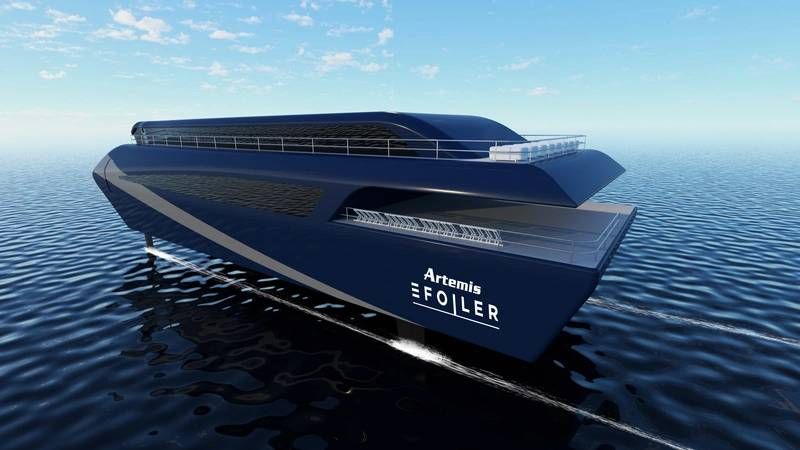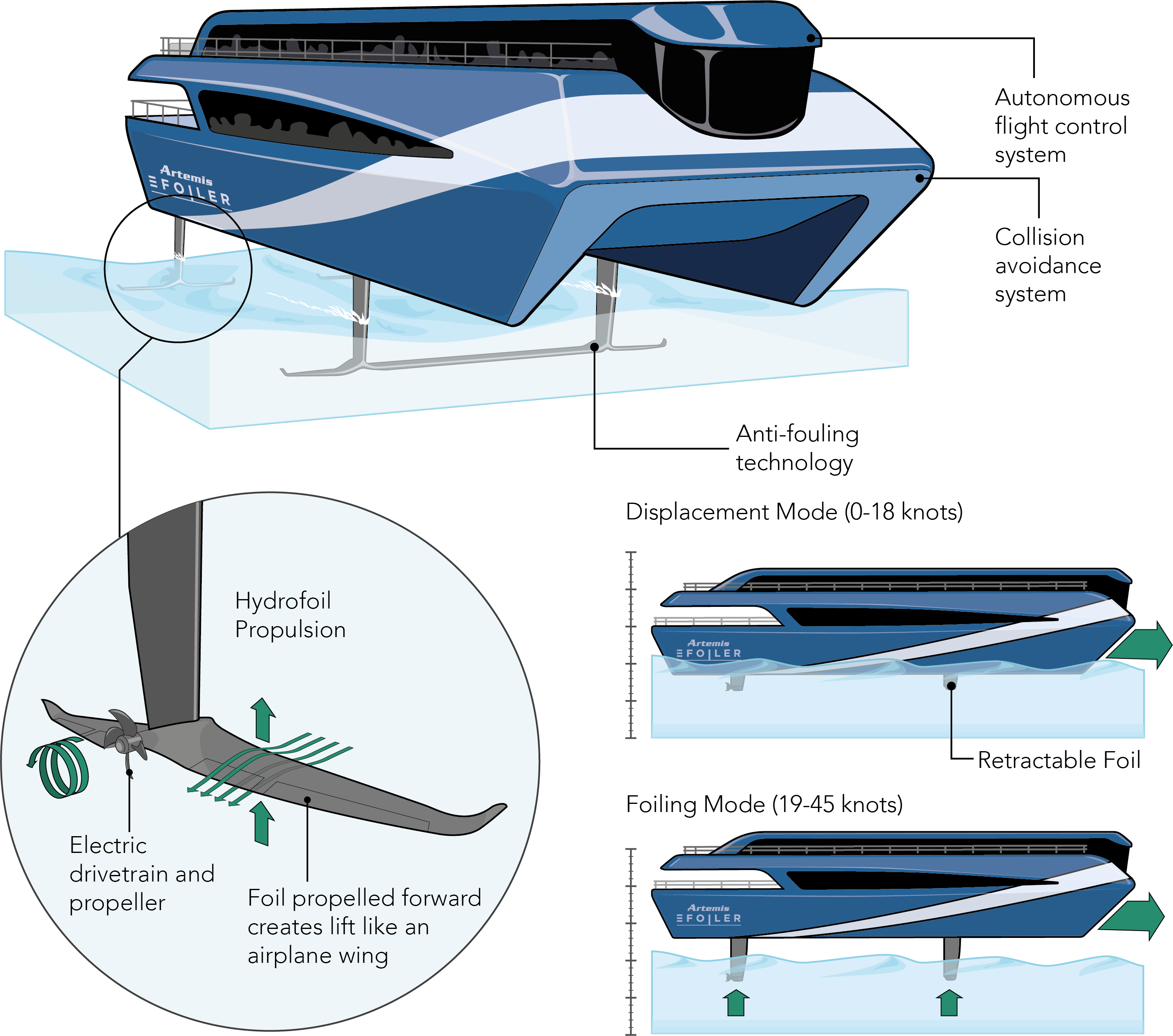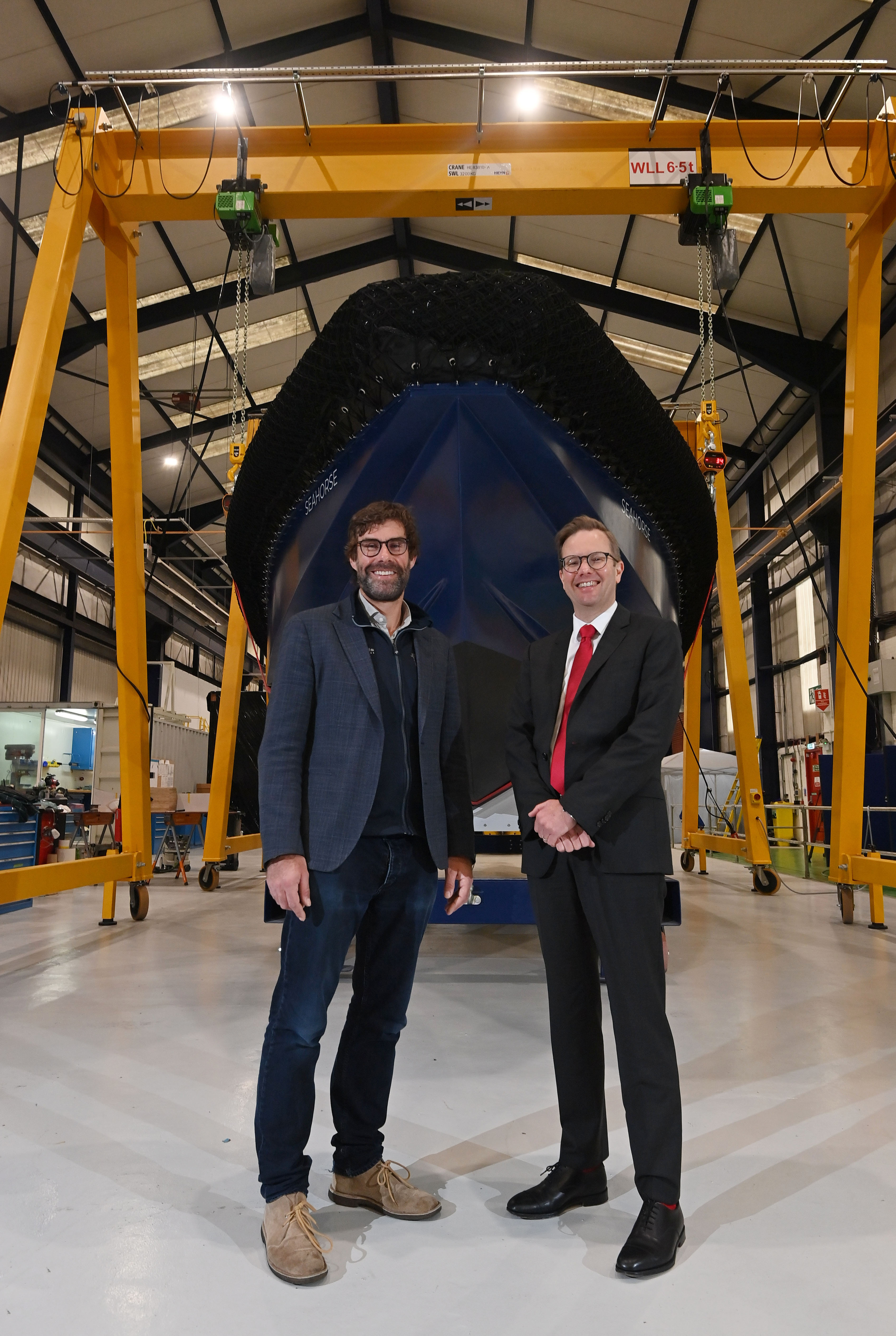


Condor is set to operate a revolutionary electric ferry designed to be the future of low-carbon, high-speed sea travel.
It has become the operational partner of the Belfast Maritime Consortium, which is looking to introduce zero-emission ferries using innovative technology under development by the Belfast-based Artemis Technologies.
The battery-powered ships will use the Artemis eFoiler system, derived from the America’s Cup race series, which would enable them to fly above the water, producing minimal wake at high-speed and using up to 90% less energy than some conventional ferries.

Pictured: How the revolutionary 'eFoiler' system will work.
John Napton, Condor’s CEO, said: “Condor and our shareholder CTI are looking to the future and this includes exploring ways of reducing our carbon emissions and finding ways to provide more sustainable travel solutions.
“We are also acutely aware that international legislation may well impact all ship operators over the next 5-10 years, so it is prudent to be involved in this exciting project now.
“As an experienced ferry company, we are happy to accept the invitation to join the consortium and help develop this technology for commercial use.”
Although foils are not part of its current fleet, Condor was a pioneer of hydrofoil technology; indeed, its first ship in 1964, Condor 1, was a hydrofoil.
Only in 1979 did the company introduce its first catamaran, Condor 6. Its last hydrofoil was Condor 7, launched in 1985 and retired in 1994.

Pictured: Dr Iain Percy OBE, CEO and Founder of Artemis Technologies, with Elwyn Dop, Condor’s Operations Director.
Dr Iain Percy OBE, CEO and Founder of Artemis Technologies said: “The announcement that Condor Ferries is joining us in the Belfast Maritime Consortium is a hugely significant endorsement of the work we are doing and marks another milestone on our journey towards leading the decarbonisation of maritime.’
A pilot scheme is targeting a launch service in 2024 which would see Condor operate a commuter passenger route between Belfast’s Titanic Quarter and Bangor Marina.
The anticipated journey time would be 30 minutes, providing a greener solution to commuters along one of the busiest traffic routes in Northern Ireland.
Comments
Comments on this story express the views of the commentator only, not Bailiwick Publishing. We are unable to guarantee the accuracy of any of those comments.